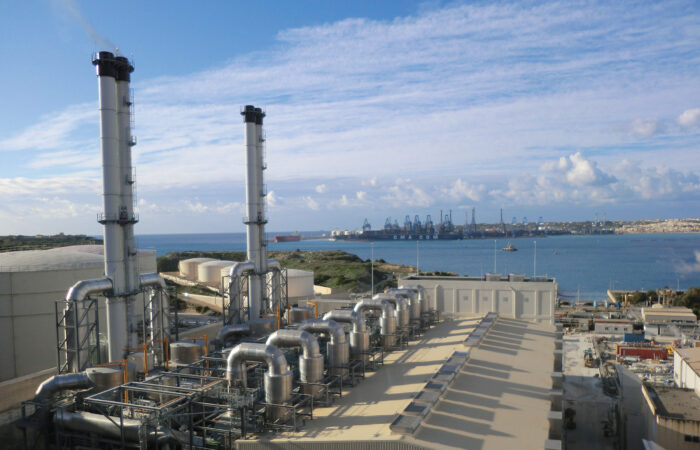Luigi Scazzieri*
Europeans have struggled to form a coherent response to the Israel-Hamas conflict that erupted after Hamas’ brutal attacks on October 7th. As the death toll has risen, European countries have tried, with limited success, to facilitate humanitarian assistance in Gaza. However, they have been unable to do much beyond that, torn by internal divisions over issues such as whether to call for a permanent end to the fighting or how to push Israel to minimise civilian casualties. Europeans have also been unable to do much about the situation in the West Bank, where attacks by Israeli settlers have resulted in several deaths, while injuring and displacing hundreds.
An end to the fighting seems distant. Israel is winding down its operations in the north of Gaza and has de-mobilised many of the reservists it had called up. But fighting is set to continue in the south, as Israeli leaders have made clear that they will not stop until Hamas has been defeated and the remaining hostages have been freed. Israel and Hamas may agree to more pauses in the fighting, but a permanent ceasefire is unlikely unless Israel feels it has broken Hamas’ fighting forces and political hold over Gaza. It is unlikely that the interim ruling by the International Court of Justice on January 26th that Israel needs to prevent incitement to genocide and allow unhindered aid to Gaza will change that calculation, as the Court did not explicitly order Israel to halt its attack. The ongoing fighting, combined with lack of food supplies and medication in Gaza, mean that the death toll, currently at over 27,000, will rise further.
Meanwhile, the risk of broader escalation is growing. Israeli military operations and settler attacks in the West Bank are weakening the Palestinian Authority (PA), which is already deeply unpopular, due to its corruption and authoritarianism. The Israeli-Lebanese border has seen exchanges of fire between Israel and the pro-Iranian Hezbollah. Hezbollah has hit Israeli military positions in the north of the country and forced Israel to evacuate around 80,000 civilians living near the border to other areas. Israel for its part has hit targets in Lebanon, including killing a Hamas leader in Beirut. Pro-Iranian militias based in Iraq and Syria have carried out dozens of attacks on US forces in the two countries and in Jordan, killing US troops. The attacks by the Iranian-backed Houthis in Yemen on shipping transiting in the Bab-el-Mandeb strait at the entrance to the Red Sea are unlikely to stop. Since mid-January, a US-led coalition has carried out airstrikes on Houthi targets, but they have had little effect on the Houthis’ ability to target shipping.
Europe’s unwillingness to take concrete steps to restrain Israel’s military operations in Gaza has strengthened the narrative that the West is guilty of double standards, treating the struggle to support Ukraine as a fight for the future of the rules-based international order while being unwilling to hold Israel to account. The move by some Western countries to suspend funding to the UN agency for Palestinian refugees, in response to allegations that a dozen of its employees had been involved in the October 7th attacks, will make it harder for aid to reach Gaza and worsen the West’s image in the Middle East and beyond.
The risk is that tit-for-tat escalation could spark a broader conflict. Further attacks by pro-Iran militias against US forces will push Washington to strike Iranian targets in retaliation, potentially sparking a broader Iranian response. Alternatively, Israel may decide to take broader action to remove Hezbollah from border areas, prompting retaliation and further escalation.
For Europe, the consequences of escalation would be significant. The costs of disruption to trade off the Horn of Africa could add up: shipping companies have already re-routed their operations around South Africa’s Cape of Good Hope, adding 7-10 days to trips between Asia and Europe and leading to rising costs, with higher insurance premiums and shipping companies tripling their charges. The Suez Canal is an important source of foreign exchange for Egypt and the attacks have exacerbated an ongoing financial crisis that risks destabilising the country. Moreover, intensified fighting between Israel and Hezbollah could further destabilise Lebanon and potentially force people to flee. And if Iran attacked ships or hydrocarbon production facilities in the Gulf states, there could be more disruption to energy flows.
Europeans are aware of these risks and are trying to mitigate them. The EU is trying to defuse the situation along the Israeli Lebanese border by urging both sides against escalation and is establishing a naval mission off the coast of Yemen to deter further Houthi attacks on shipping. Meanwhile, EU High Representative Josep Borrell has sought to put the future of post-war Gaza on the agenda and is trying to find ways to advance the two-state solution.
Any progress will be very difficult. Europeans might be able to push Israel to allow more humanitarian aid into Gaza. However, as Borrell admitted, Europe lacks the cohesion and influence to persuade Israel to halt military operations. Only the US could do that, but Biden has been unwilling to put meaningful pressure on Israel. Even if he did, Israel would be very unlikely to accept a permanent ceasefire so long as it thought Hamas posed a threat. It will also be hard for Europeans to dampen regional tensions. European countries also have limited leverage when it comes to trying to prevent a broader conflagration involving Hezbollah or Iran.
Developing a realistic plan for Gaza’s governance and advancing a two-state solution could be even harder. The US wants a revitalised PA to run Gaza and hopes to convince Israel to take steps towards a two-state solution by enticing it with the prospect of normalising relations with Saudi Arabia. The Arab countries have developed similar plans, and those European countries that are thinking about these issues broadly agree. The problem is that Netanyahu has rejected a two-state solution, and his far-right allies pursue an annexationist agenda in the West Bank and Gaza, openly supporting the idea of opening the strip to settlers and encouraging “voluntary migration” of Gazans.
For its part, the PA does not currently have the authority or resources to govern Gaza, and does not want to look as though it has returned to power there on the back of Israel’s offensive. In the medium-term, however, the future governance of Gaza cannot be separated from that of the West Bank. An empowered and revitalised PA would look like a more serious and legitimate entity to Palestinians, Israel and external powers. The popularity of Hamas and other extremist groups would diminish, potentially allowing the PA to retake control of Gaza and encouraging Arab countries to fund reconstruction. It would then be possible to imagine progress towards a two-state solution – or something close to it.
Europeans should pursue both short- and long-term goals. They should push for more humanitarian assistance to reach Gaza and maintain their funding for the UN agency for Palestinian refugees. They need to focus on pursuing concrete steps to pave the way for long-term diplomacy. First, they should try to persuade Arab partners and the US to link potential normalisation to concrete Israeli steps to empower the PA. The EU is planning a peace conference, which could be framed as an effort to build consensus for such a plan even if the current Israeli government flatly rejects it. Second, Europeans should be firmer in pushing back against Israel’s policies in the West Bank. Recognising Palestinian statehood, as some European countries are considering, would be a symbolic step but would not change much. Instead, Europeans should sanction extremist settlers and seriously implement a ‘differentiation’ policy that distinguishes between the occupied territories and Israel proper. Third, Europeans should try to push the PA to renew its leadership and increase its transparency and accountability. Cutting aid is unlikely to be effective, but Europeans could offer additional financial assistance and tie it to clear targets.
To have a chance of succeeding, such a strategy would require a united effort by European countries, close co-ordination with a receptive US administration and Arab partners, and a more moderate Israeli government. While the obstacles are formidable, it is difficult to see any other feasible way ahead. Failing to take serious steps to stabilise the West Bank would mean that the risk of regional escalation would endure. And, even if Israel succeeded in driving Hamas fully from Gaza, extremism there and in the West Bank would be strengthened in the long run. The cycle of violence would resume.
*Luigi Scazzieri is a senior research fellow at the Centre for European Reform. The article was posted on the website of the Centre for European Reform and is re-posted on the Blog of the Cyprus Economic Society.




